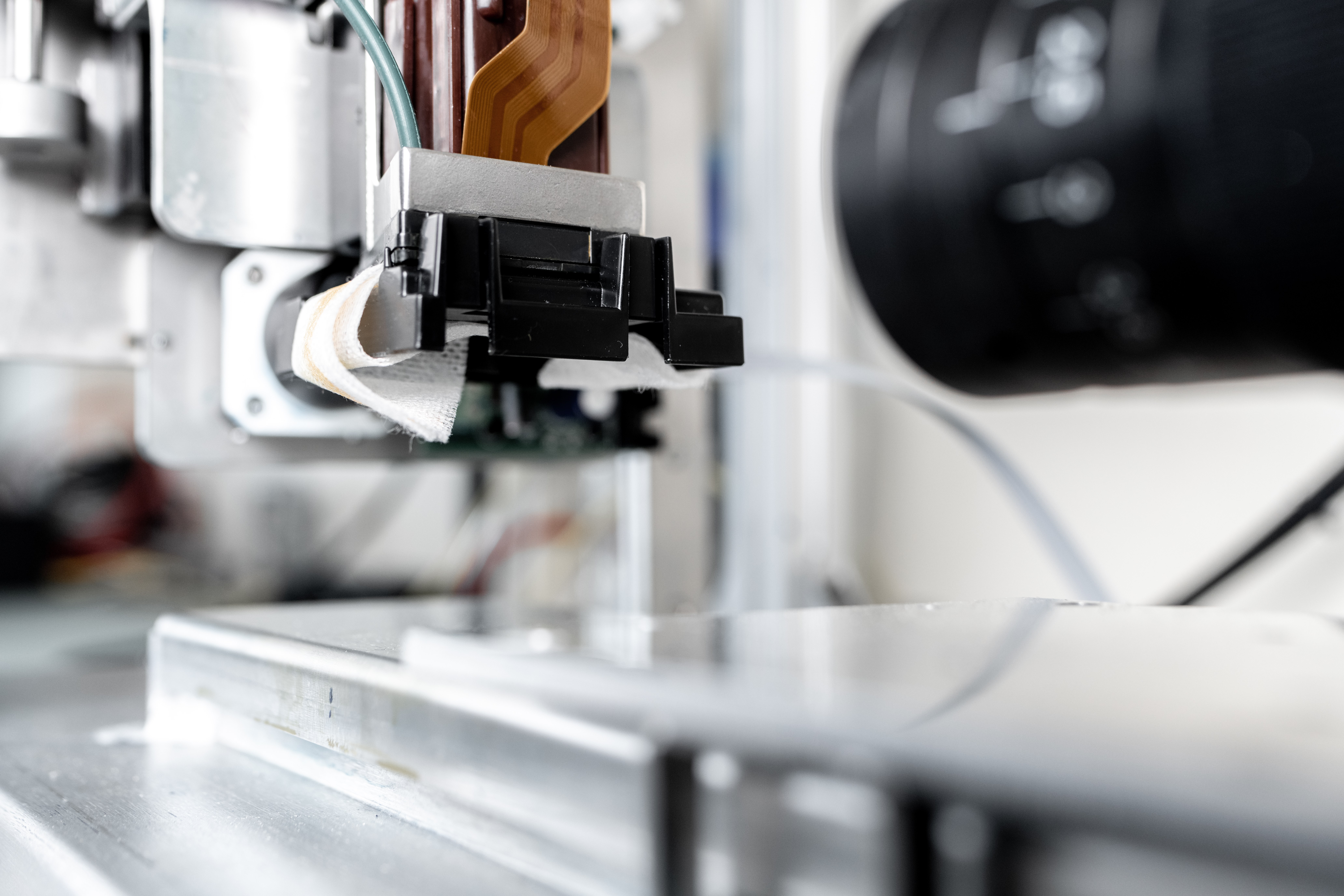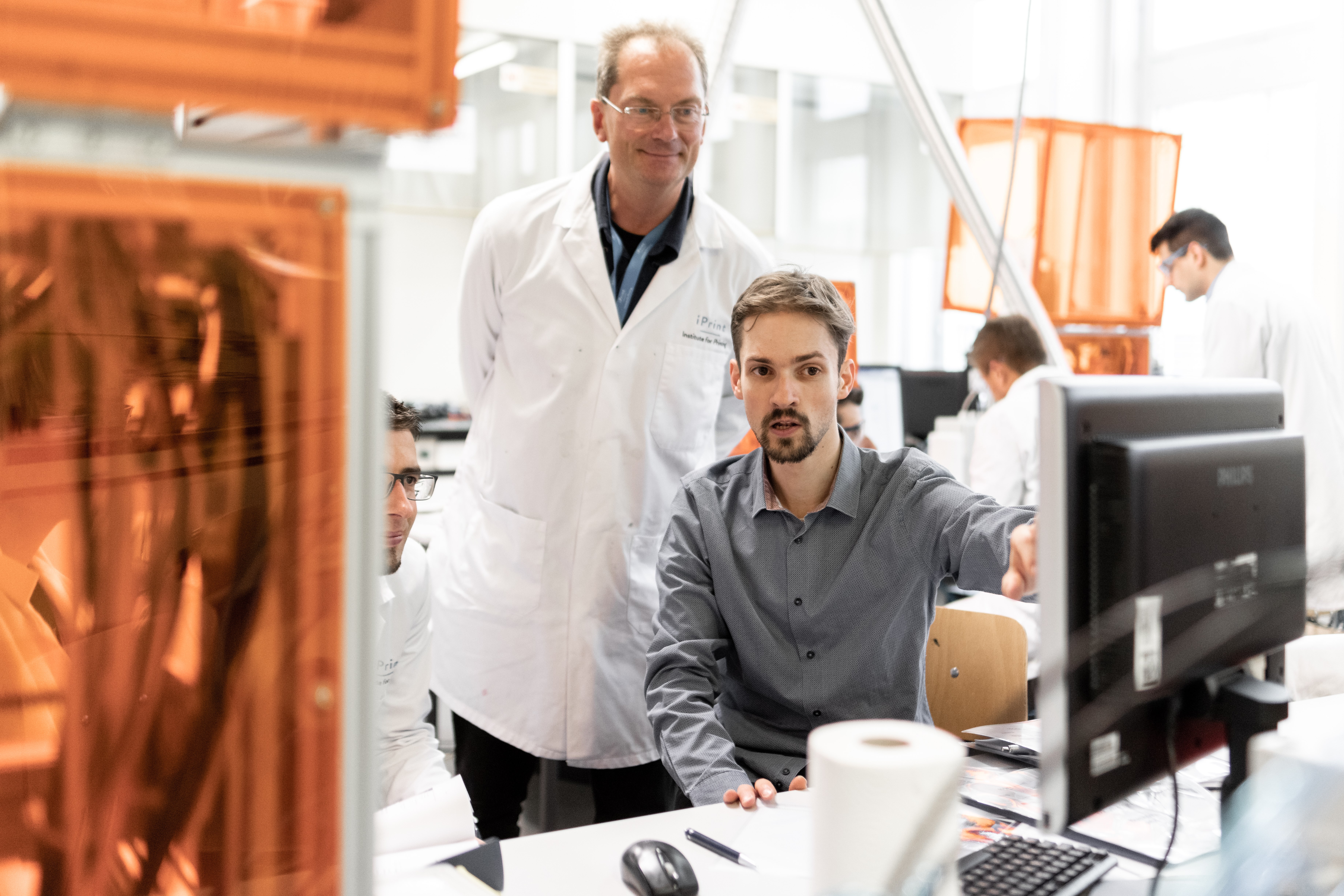Hands-on Lab Course | Advanced Course
The course is open to all participants who have...
The focus of the course is to train participants in assessing, developing and improving waveforms for drop on demand inkjet printheads. Participants will also be familiarized with measures for reliable printhead operation. Hands-on practical lab work is complemented by short theoretical lessons. The covered topics are proper inkjet system setup and analysis, inkjet acoustics, single and multi-pulse waveform design, grayscale waveform design, generation of small drops, idle pulse design and jet recovery. Lab work is done in small groups on drop watching platforms, each of them equipped with a Ricoh MH5421F print head jetting water-based or UV-based inks.

In piezo drop on demand (DoD) inkjet print heads, ink droplets are generated due to pressure waves introduced by the motion of piezoelectric actuators which are in turn controlled by an electrical signal called the waveform. As the propagation time (which is the speed of sound of the jetted fluid in relation to the channel length) of the pressure waves in an inkjet channel is significantly larger than the time needed for the piezoelectric actuator to reach its full amplitude, acoustic interference effects dominate the jetting process.
A piezo inkjet channel can be seen as an acoustic resonator where pressure waves are reflected with the same polarity on closed ends or with inverse polarity at open ends. Each movement of the piezoelectric actuator creates a new pressure wave, which resonates in the inkjet channel (with a certain attenuation per cycle) and can constructively (pressure amplification) or destructively (pressure attenuation) interfere with previously created pressure waves.
One of the major factors affecting the quality and reliability of piezo drop on demand (DoD) inkjet printing machines is the design of the waveform. While there are limitations on possible jetting performance due to the rheological properties of the ink, to achieve highest jetting quality or print speed, the waveform has to be properly adjusted.
After attending the training, you should:

The Masterclass is led by Johannes Renner. Johannes Renner studied mechatronics with a specialization in automation technology at the Secondary Federal College of Engineering in Vienna, and machinery engineering as well as mechatronics at the Bern University of Applied Sciences, where he worked after graduation in 2007 as scientific assistant and as scientific officer for the Institute of Print Technology. In 2013 he joined the iPrint institute in Fribourg. Johannes has gained over 15 years of experience in applied research with a focus on inkjet technology and contributes to many of iPrint’s inkjet-related projects in management and development.
Participants can also request personalized training on specific topics. iPrint is flexible and happy to support your inkjet education.
By continuing to browse this site, you agree to the use of cookies to improve your user experience and to provide website statistics.

